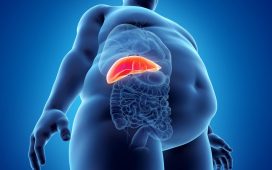Authors say inhaled insulin may provide convenient alternative delivery method
By Lori Solomon HealthDay Reporter
THURSDAY, June 27, 2024 (HealthDay News) — Inhaled insulin is associated with improved hemoglobin A1c (HbA1c) levels over 16 weeks among adults with type 1 diabetes when compared to usual care, according to a study presented at the annual meeting of the American Diabetes Association, held from June 21 to 24 in Orlando, Florida.
Irl B. Hirsch, M.D., from the University of Washington in Seattle, and colleagues conducted a randomized trial that compared the efficacy of an inhaled insulin regimen (Afrezza) plus degludec insulin (Tresiba) to usual care for 17 weeks among adults with type 1 diabetes treated at 19 U.S. centers.
The researchers found that more participants using the inhaled insulin regimen experienced significant improvements in HbA1c levels versus usual care, including 21 percent of those on inhaled insulin with HbA1c improvement >0.5 percent versus 5 percent for those receiving standard care. Among participants with HbA1c level ≥7 percent at baseline, 21 percent of those on inhaled insulin achieved the HbA1c goal of <7 percent, while no participants receiving standard care achieved the goal. Among participants who switched from using an automated insulin delivery system to using inhaled insulin plus degludec, 19 percent achieved an HbA1c improvement >0.5 percent. However, 26 percent of the patients in the inhaled insulin group had a worsening of HbA1c >0.5 percent versus 3 percent receiving standard care.
“The INHALE-3 study’s findings will impact diabetes management by providing healthcare providers and patients with an alternative insulin delivery method,” Hirsch said in a statement. “These results will assist in better informing clinical decisions and tailoring treatment plans to individual patient needs, potentially improving adherence, patient satisfaction, and overall outcomes.”
Copyright © 2024 HealthDay. All rights reserved.








